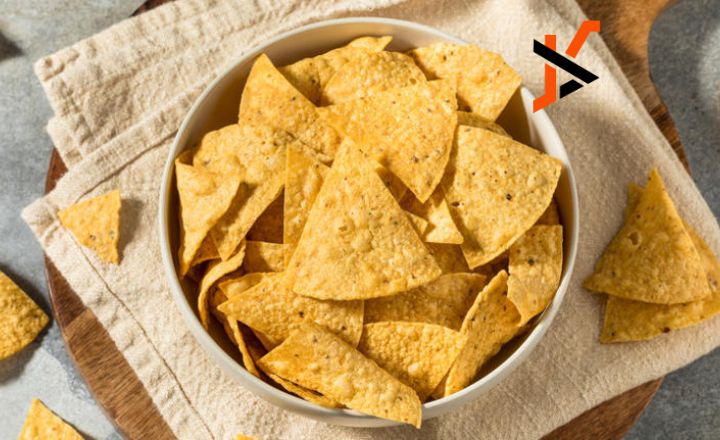Tortilla chips have become a staple in many households, often enjoyed as a snack or as a crunchy accompaniment to various dishes. With their rising popularity, however, comes the question: are tortilla chips healthy? This article will explore the nutritional aspects of tortilla chips, their potential health benefits, and drawbacks, and help you make informed choices about incorporating them into your diet.
The Nutritional Profile of Tortilla Chips
To determine whether tortilla chips are healthy, it’s crucial to examine their nutritional content. Tortilla chips are typically made from corn, which is a staple grain in many cultures. The basic ingredients usually include cornmeal, oil, and salt. Here’s a breakdown of the nutritional profile based on a standard serving size of about 1 ounce (approximately 10-15 chips):
- Calories: A serving of tortilla chips can contain anywhere from 130 to 150 calories, depending on the brand and preparation method.
- Fat: Tortilla chips are generally fried, which increases their fat content. A serving can contain around 7-10 grams of fat, with a significant portion being unhealthy saturated fats if cooked in certain oils. Some brands offer baked versions that have lower fat content.
- Carbohydrates: Tortilla chips are high in carbohydrates, with a serving providing about 15-20 grams. They typically contain little dietary fiber, as most of the fiber in corn is removed during processing.
- Protein: The protein content is relatively low, typically around 2 grams per serving. Tortilla chips are not a significant source of protein compared to other snack options.
- Sodium: One of the most concerning aspects of tortilla chips is their sodium content. A serving can have anywhere from 120 to 300 milligrams of sodium, which can contribute to high blood pressure and other health issues if consumed in excess.
The Ingredients Matter
The healthiness of tortilla chips can vary significantly based on the ingredients used. Some brands use whole-grain corn and minimal additives, while others may contain preservatives, artificial flavors, and unhealthy oils. When shopping for tortilla chips, look for options that are:
- Made from whole grains: Whole grain tortillas retain more of the fiber and nutrients found in corn.
- Low in sodium: Some brands offer low-sodium varieties, which can help manage your salt intake.
- Baked rather than fried: Baked chips typically contain less fat and fewer calories, making them a healthier option.

Health Benefits of Tortilla Chips
Despite their reputation as a snack food, tortilla chips can have some health benefits when consumed in moderation and made with quality ingredients. Here are a few potential advantages:
- Source of Carbohydrates: Tortilla chips provide a quick source of energy due to their carbohydrate content. This can be beneficial for individuals who need a rapid energy boost, such as athletes or those engaged in physical activities.
- Vitamins and Minerals: Corn is a source of various vitamins and minerals, including B vitamins, magnesium, and phosphorus. While the processing of corn into tortilla chips reduces some of these nutrients, you may still get some benefits from quality brands.
- Versatile Snack: Tortilla chips can be paired with healthier dips, such as salsa, guacamole, or hummus, adding nutritional value to your snack. These dips can provide healthy fats, fiber, and additional vitamins, making your overall snack more balanced.
- Cultural Significance: In many cultures, tortilla chips are an integral part of traditional dishes and celebrations, providing not just sustenance but also social enjoyment.
Potential Drawbacks of Tortilla Chips
While there are some benefits, it’s essential to consider the potential drawbacks of tortilla chips:
- High Caloric Density: Because tortilla chips are calorie-dense and often consumed mindlessly while snacking, they can contribute to weight gain if eaten in large quantities.
- Low Nutritional Value: Despite being made from corn, tortilla chips often lack fiber and essential nutrients due to processing. This means they may not provide the satiety that whole foods do, leading to overeating.
- Sodium Content: The sodium levels in many tortilla chips can be concerning, especially for individuals with hypertension or those monitoring their salt intake. High sodium consumption is linked to various health issues, including heart disease.
- Potential Additives: Some brands use unhealthy oils or additives that may negate the benefits of the corn itself. It’s vital to read labels carefully to avoid unhealthy ingredients.
Making Tortilla Chips Healthier
If you love tortilla chips but are concerned about their health implications, there are several ways to enjoy them more healthily:
- Portion Control: Be mindful of serving sizes. Instead of eating directly from the bag, portion out a small serving to help manage your intake.
- Homemade Options: Consider making your tortilla chips at home. Using whole-grain tortillas, you can cut them into triangles, bake them with a drizzle of olive oil, and season them with your favorite spices.
- Choosing Healthier Dips: Pair tortilla chips with nutritious dips like guacamole, which provides healthy fats, or fresh salsa loaded with vegetables. This can enhance the overall nutritional profile of your snack.
- Experiment with Alternatives: If you’re looking for a healthier alternative, consider using baked tortilla chips, or even try snacks made from chickpeas or lentils, which are higher in protein and fiber.
- Mindful Eating: Pay attention to your eating habits. Avoid distractions while snacking, as this can lead to overeating. Enjoy the crunch and flavor of tortilla chips, savoring each bite.

Conclusion
So, are tortilla chips healthy? The answer is nuanced. While they can offer some nutritional benefits when made with quality ingredients and consumed in moderation, they also come with drawbacks, particularly regarding their calorie density and sodium content. The key lies in making informed choices: opt for whole grain or baked varieties, watch your portion sizes, and pair them with healthy dips.
Ultimately, tortilla chips can fit into a balanced diet if enjoyed mindfully. By focusing on quality and moderation, you can indulge in this popular snack without compromising your health. As with all foods, balance is essential, so make sure to complement your diet with a variety of whole foods, fruits, vegetables, lean proteins, and healthy fats for optimal nutrition.

